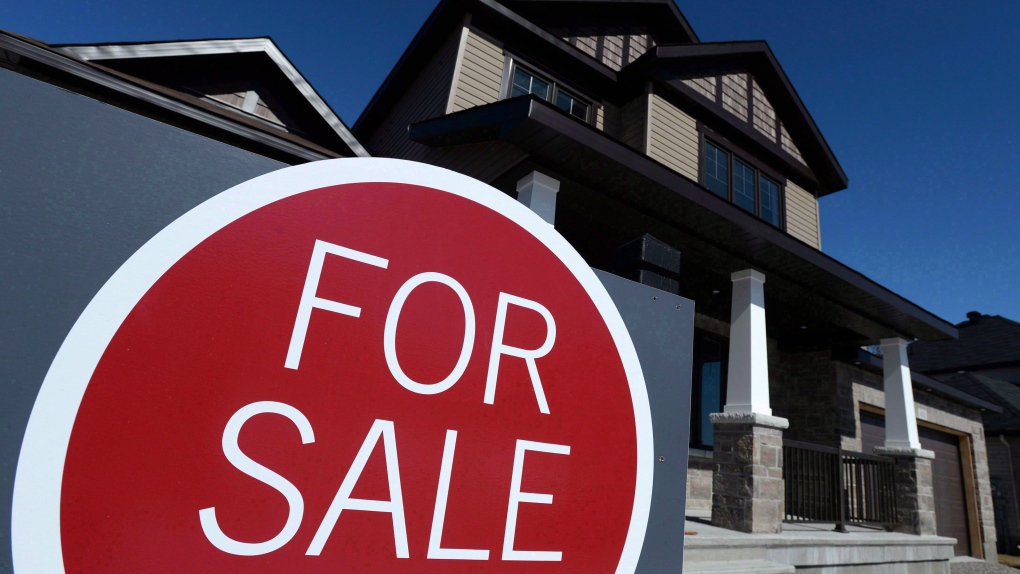
Lack of detention space could force CBSA to release detainees, internal memo warns
The Canada Border Services Agency is scrambling to find space to hold high-risk detainees that are set to be transferred from provincial jails in June.
A rush of investors into Canada's housing market has likely helped fuel the belief prices will keep rising and that could increase the chance of market correction, a deputy governor of the Bank of Canada said on Tuesday.
Paul Beaudry, in a virtual speech to a provincial regulator, also said Canada's main financial system vulnerabilities - housing market imbalances and high levels of household debt - had been intensified by the pandemic.
"A sudden influx of investors in the housing market likely contributed to the rapid price increases we saw earlier this year. In such a case, expectations of future price increases can become self-fulfilling, at least for a while," he said.
"That can expose the market to a higher chance of a correction."
Beaudry later added that while house price gains can be expected when interest rates are low, the central bank becomes concerned when it starts seeing signs of "panic buying or ... extrapolative expectations."
That type of dynamic is unhealthy and can drive the market further away from fundamentals, which can lead to corrections, he said.
Still, Beaudry noted "somewhat slower" house price growth over the summer should lower the chances of undesirable extrapolative price dynamics. When asked if foreign investors were fueling the exuberance, he said bank data showed the push was from domestic investors.
"These are Canadians buying these investment properties... and potentially putting them on the market to rent or just holding them," he said.
Housing prices soared through early 2021, surging to a peak in March before slipping over the summer months. They have again picked up steam, nearing that record in October, according to realtor data.
At the same time, the central bank has seen an increase of riskier high loan-to-income ratio mortgages, leaving people more vulnerable to rising rates. It signaled last month that it could start hiking rates as soon as April 2022.
"Vulnerabilities linked to elevated household debt appear to be rising again after a slight pause," said Beaudry.
He made clear that Canada's financial system was sound, but said a drop in housing prices could affect household spending and that could impact employment.
Reporting by Julie Gordon in Ottawa; Editing by Alex Richardson and Mark Heinrich

The Canada Border Services Agency is scrambling to find space to hold high-risk detainees that are set to be transferred from provincial jails in June.
American millionaire Jonathan Lehrer, one of two men charged in the killings of a Canadian couple in Dominica, has been denied bail.
Guitar legend Dickey Betts, who co-founded the Allman Brothers Band and wrote their biggest hit, 'Ramblin' Man,' has died. He was 80.
Most Canadians in March reported feeling angry or pessimistic towards the federal government than at any point in the last six years, according to a survey by Nanos Research.
Ontario Provincial Police say they have 'disrupted' an organized crime group that allegedly used an emergency grandparent scam to defraud seniors across Canada out of hundreds of thousands of dollars.
A Google Drive link allegedly containing 17 tracks that are purportedly from Swift's eagerly awaited "The Tortured Poets Department" album has been making the rounds on the internet in the past day and people are equal parts mad, sad and happy about it.
A motion to reverse a ban on the keffiyeh within Queen’s Park failed to receive unanimous consent Thursday just moments after Ontario Premier Doug Ford reiterated his view that prohibiting the garment in the House is divisive.
The journey to home ownership can be exciting, but personal finance columnist Christopher Liew warns about the trappings of becoming 'house poor' -- where an overwhelming portion of your income is devoured by housing costs. Liew offers some practical strategies to maintain better financial health while owning a home.
Calgary police say Winston Campbell, 45, has been charged in the death of a two-year-old girl in 2022.

Molly Knight, a grade four student in Nova Scotia, noticed her school library did not have many books on female athletes, so she started her own book drive in hopes of changing that.
Almost 7,000 bars of pure gold were stolen from Pearson International Airport exactly one year ago during an elaborate heist, but so far only a tiny fraction of that stolen loot has been found.
When Les Robertson was walking home from the gym in North Vancouver's Lower Lonsdale neighbourhood three weeks ago, he did a double take. Standing near a burrow it had dug in a vacant lot near East 1st Street and St. Georges Avenue was a yellow-bellied marmot.
A moulting seal who was relocated after drawing daily crowds of onlookers in Greater Victoria has made a surprise return, after what officials described as an 'astonishing' six-day journey.
Just steps from Parliament Hill is a barber shop that for the last 100 years has catered to everyone from prime ministers to tourists.
A high score on a Foo Fighters pinball machine has Edmonton player Dave Formenti on a high.
A compound used to treat sour gas that's been linked to fertility issues in cattle has been found throughout groundwater in the Prairies, according to a new study.
While many people choose to keep their medical appointments private, four longtime friends decided to undergo vasectomies as a group in B.C.'s Lower Mainland.
A popular highway in Alberta's Banff National Park now has a 'no stopping zone' to help protect two bears.
 A sign advertises a new home for sale in Carleton Place, Ont., on March 17, 2015. (Sean Kilpatrick/The Canadian Press)
A sign advertises a new home for sale in Carleton Place, Ont., on March 17, 2015. (Sean Kilpatrick/The Canadian Press)